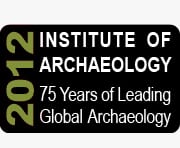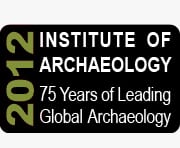Archaeology and the Media: A Special Relationship?
By news editor, on 27 February 2012
 The first of five topical debates about archaeology and heritage in a contemporary world, “Archaeology and Media” proved to be a lively and engaged discussion about the role of media in archaeology and the role of archaeology in media.
The first of five topical debates about archaeology and heritage in a contemporary world, “Archaeology and Media” proved to be a lively and engaged discussion about the role of media in archaeology and the role of archaeology in media.
The event, held on 20 February, was chaired by Maev Kennedy (arts/archaeology correspondent, the Guardian), and featured Alexander Langlands (presenter of BBC2’s Victorian Farm, Edwardian Farm and Tales from the Green Valley), Caroline Norris (producer, Horrible Histories), David Keys (archaeology correspondent, the Independent) and Charles Furneaux (Managing Director of Kaboom Film & Television, former commissioning editor, Channel 4).
As archaeology struggles to find its place in the current era of restricted funding, with a dominant focus on the economic value of STEM subjects, the topic of archaeology and the media is particularly relevant.
My interests in the history of archaeology in the late 19th and early 20th century cover a period in which government support for archaeology was nearly non-existent – a useful parallel for negotiating today’s market driven attitudes to scholarship. In the past, archaeologists used print media, film, exhibitions and marketing to raise money for research from a variety of stakeholders, including major industrialists.
 Close
Close




